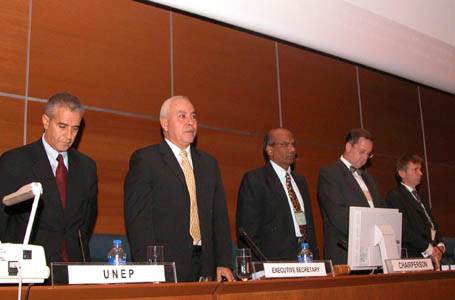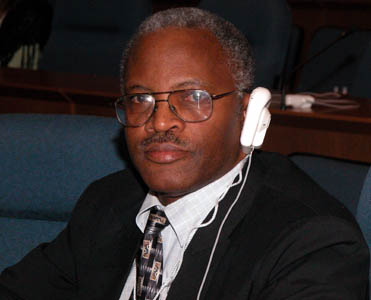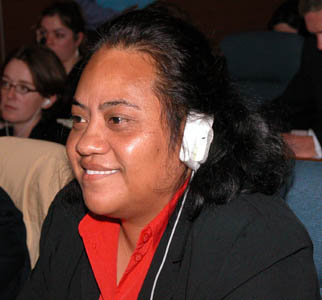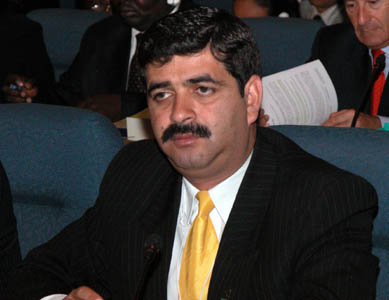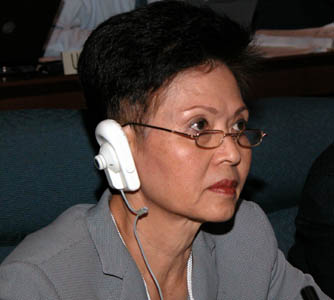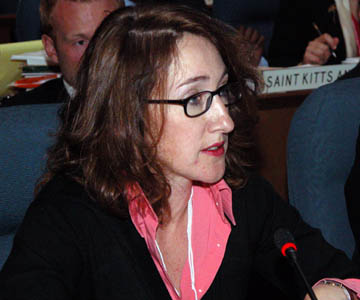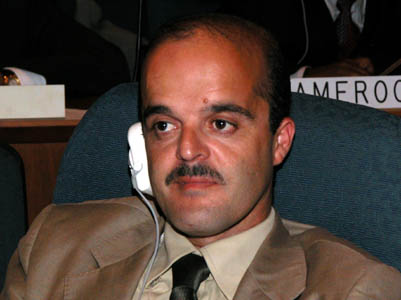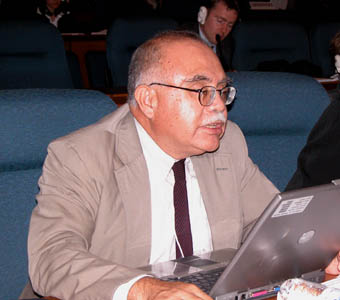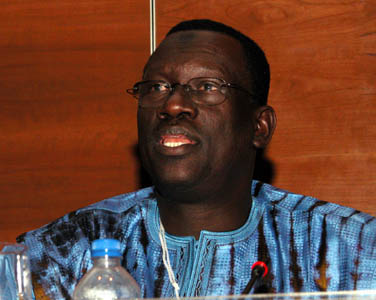|
|
|
|
OPENING PLENARY: Statements
|
|
|
|
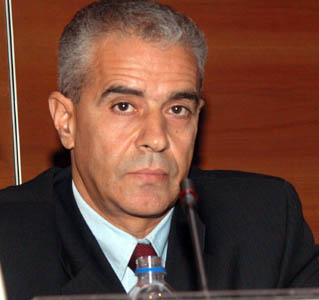
|
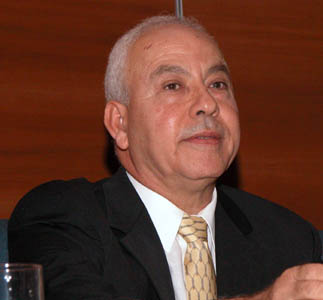 |
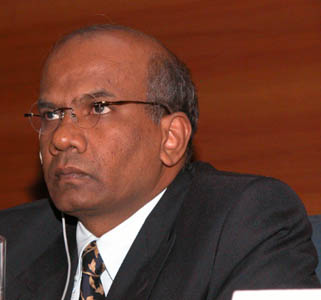 |
|
|
|
|
Noting
the results of the Millennium Ecosystem Assessment (MA),
and reaffirming UNEP’s commitment to
support the Convention implementation, Ahmed
Djoghlaf, on behalf of UNEP Executive Director Klaus
Töpfer, recommended that WGRI consider
strengthening the Convention processes to respond
effectively to existing biodiversity trends and achieving
the 2010 target. He extended his condolences to the victims of Hurricane Katrina
in the United States and proposed to observe a minute of silence. |
Hamdallah
Zedan, CBD Executive Secretary, reviewed the
objectives of WGRI, and encouraged participants to
undertake a holistic review to overcome challenges,
including: translation of the 2010 target
into national goals, enhancement of the effectiveness of
national reporting, and stakeholder involvement. He also
cautioned against overburdening Parties, the Secretariat
and partner organizations with additional meetings. |
WGRI
Chair Letchumanan Ramatha, Under-Secretary of the
Ministry of Natural Resources and Environment of Malaysia,
speaking on behalf
of COP-7 President Dato Sri Adnan Haji Satem,
Minister of Natural Resources and Environment of Malaysia,
welcomed participants and called for translating the
results of the review into proposals to improve the
effectiveness of the Convention. |
|
Regional
Statements:
|
|
|
|
|
Above photos L-R: Rawson
Piniel Yonazi (Tanzania), Terei Abete-Reema (Kiribati),
and Antonio Matamoros (Ecuador), elected as the
Rapporteur for the meeting.
|
|
|
Kiribati,
on behalf of Asia and the Pacific, reported on obstacles in the
region, particularly for small island developing states, to
implement the Convention due to financial, capacity and technological
constraints. Tanzania, on behalf of Africa, called for
increasing financial resources, and human and technological
capacity for national implementation, and simplifying national
reporting. Poland, on behalf of Central and Eastern Europe (CEE),
recognized the need to improve national implementation through
strengthening National Biodiversity Strategies and Action Plans
(NBSAPs) and reporting procedures. Ecuador, on behalf of Latin
America and the Caribbean (GRULAC), called for proposals to
substantively change institutional aspects of the Convention,
including the request for additional funding for implementation.
UK,
on behalf of the EU, Bulgaria and Romania, stressed the
opportune timing of the WGRI meeting, immediately prior to the
2005 World Summit, and the importance of its task to streamline
implementation processes. Noting the importance of increasing
political support and public awareness for implementation, he
said that socioeconomic aspects of biodiversity conservation
should be emphasized.
|
|
|
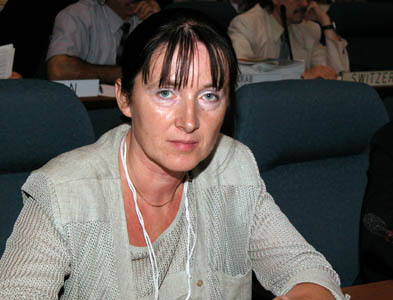
|
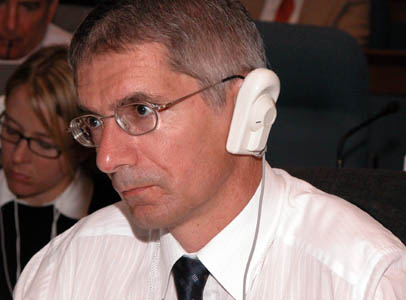
|
|
|
|
Above
photos L-R: Bozena Haczek (Poland) and Roy
Hathaway (United Kingdom)
|
|
|
|
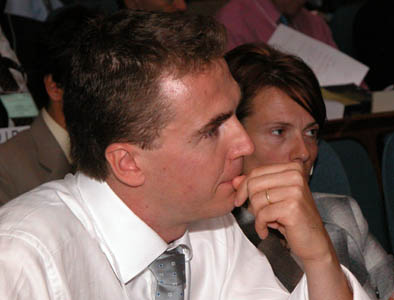
|
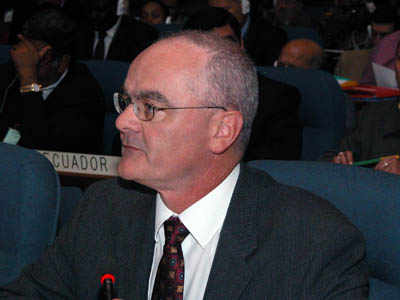 |
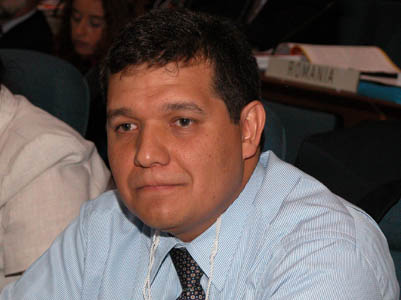 |
|
|
|
|
|
Stressing
the poor public understanding of the biodiversity crisis
and its socioeconomic impacts, France reported on its
initiative to start consultations on an independent
international scientific body to conduct
biodiversity-related scientific assessments and
raise awareness. Above photo: Thomas Jeanneret (France) |
Canada
said that WGRI is a milestone on the path to targeted
implementation, given that the MA indicates that
biodiversity loss continues at an unprecedented rate.
Above photo: Robert McLean (Canada) |
Mexico
urged reviewing the operation of subsidiary bodies and
their voting rules, and aligning CBD activities for
achieving the 2010 target.
Above photo: Hesiquio Benitez-Diaz (Mexico) |
|
|
|
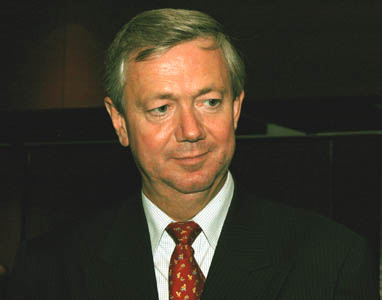
|
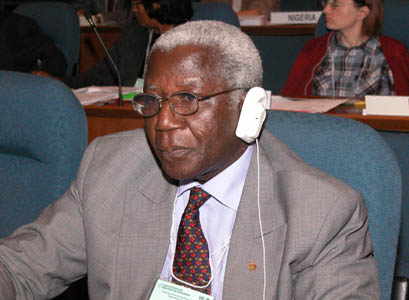
|
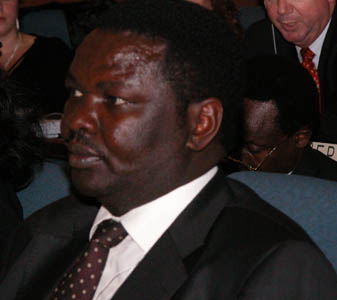
|
|
|
|
|
Above
photos: Hans Hoogeveen (COP-6 President), Alfred
Oteng-Yeboah (Chair SBSTTA-9 and 10) and Francis
Nyenze (COP-5 President) |
|
|
Francis
Nyenze, COP-5 President, called attention to the
achievements of the CBD and highlighted its pioneering work on
ecotourism and access and benefit-sharing (ABS). Hans
Hoogeveen, COP-6 President, identified future challenges for
the CBD, including: developing a balanced international regime
on ABS; showing leadership in the development of an
international legal instrument on forests; stepping up the
commitment to implement the work programme on protected areas;
and increasing transparency, efficiency and flexibility of its
operations.
Alfred
Oteng-Yeboah, SBSTTA-9 and -10 Chair, drew attention to the revised
Operational Plan for SBSTTA, stressing the need to: improve the quality of SBSTTA’s scientific
advice; ensure adequate expertise of SBSTTA’s participants; and dedicate sufficient time to discuss the results of scientific assessments without providing policy advice.
|
|
|
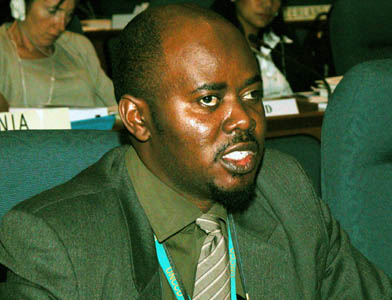
|
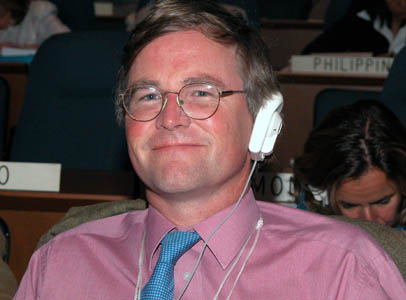 |
|
|
|
Sem
Shikongo (Namibia) (above left) was elected to chair
Sub-Working Group II (SWG-II) and Matthew Jebb
(Ireland) (above right) was elected to chair
Sub-Working Group I (SWG-I). |
|
|
|
Afternoon
Plenary: Progress in Implementation
On Monday
afternoon, the plenary considered progress in, and the obstacles
to, the implementation of the Convention and the Strategic Plan
and achievements leading up to the 2010 target (UNEP/CBD/WG-RI/1/2
and INF.8).
|
|
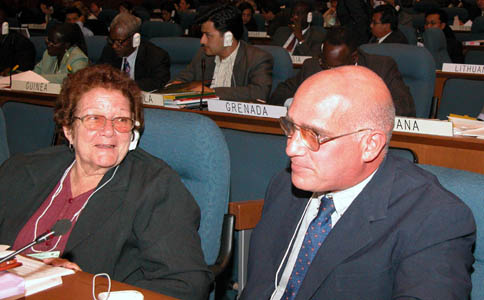 |
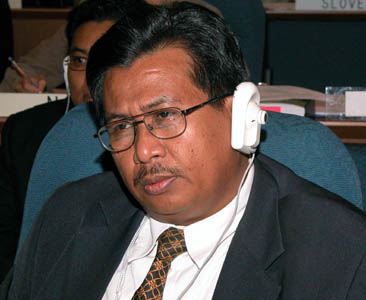 |
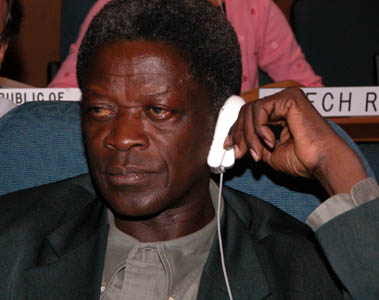 |
|
|
Above
photos L-R: Dalia Maria Salabarria Fernandez, and Orlando
Santos (Cuba); Mohd Yunus Zakaria (Malaysia);
and Soumayila Bancé (Burkina Faso)
|
|
Malaysia
noted that implementation at the international level had
mainly focused on biodiversity conservation, rather than
on its sustainable use and benefit sharing, and expressed
concern that the increase in activities under the
Convention had not been balanced by available funding.
Burkina Faso, India and Namibia called for focusing
efforts on ABS. Cuba proposed a reference to CBD Article 1
(objectives) to ensure balanced implementation of all the
three objectives. Many participants agreed on the need to
undertake an in-depth analysis of the Strategic Plan Goals
2 (Parties have improved financial, human, scientific,
technical, and technological capacity to implement the
Convention) and 3 (NBSAPs and the integration of
biodiversity concerns into relevant sectors serve as an
effective framework for the implementation of the
objectives of the Convention). |
|
|
|
|
|
|
Above
photos L-R: Chaweewan Hutacharern (Thailand); Jane
Coombs (New Zealand); Kouri Fateh (Algeria)
|
|
Thailand
agreed on the need to consolidate guidance on NBSAPs before
COP-9, in order to enhance effective national implementation.
Algeria stressed national coordination mechanisms for
implementation activities. Zimbabwe called for support to community-level implementation. New Zealand urged focusing on
immediate outcomes, through addressing barriers to the
implementation of NBSAPs, priority setting, and restraint from
additional requests to Parties and the Secretariat.
|
|
|
|
|
|
Mario Ramos, GEF
(above left) provided information on CBD-related funding for
enabling activities to support implementation, identify options,
device strategies and action plans and finance projects on
thematic and cross cutting issues. Bakary Kante, (above
right) UNEP Director for the Division of Environmental
Conventions, reported on UNEP work with the CBD and other
Multilateral Environmental Agreements to streamline processes,
highlight success stories illustrating common implementation
issues, and assist national implementation.
|
|
|
|
|
|
|
|

